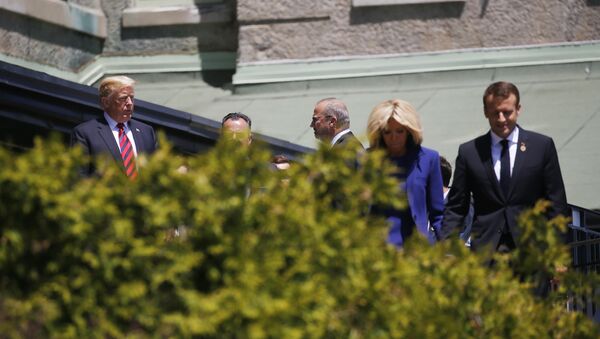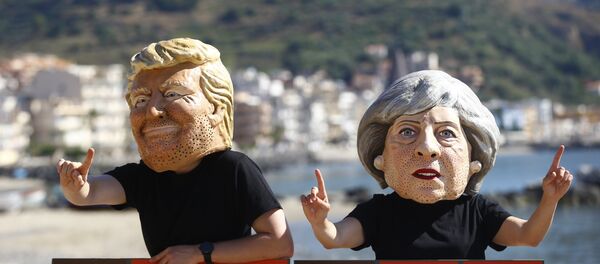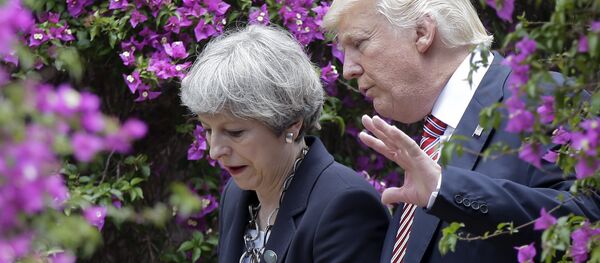Sputnik: What is your take on the upcoming G7 summit and the general opposition the US is facing from other members?
Ian Lee: I do not recall a G7 being so fractious and so controversial, that is that I don’t recall a G7 where six countries were lined up in opposition to the United States, which has often been called over the last half-century the "leader of the free world."
This is very, very unusual territory that we see ourselves in, where, as I said, the other countries of G7, which are Canada and some of the major European countries, are so opposed to what President Trump is doing.
Sputnik: Looking back, just recently, Emmanuel Macron was in the US, he met with Donald Trump, and everybody was talking about the "bromance" [between them]; you know, it was such a lovely relationship. What happened?
Ian Lee: I wasn’t surprised. I thought that the relationship between the president of France and President Trump was rather tenuous; and I say that because I‘ve read every economic speech that President Trump has given since he became a candidate. The key message that’s been there in with Donald Trump from the very beginning is this enduring theme of trade. And that theme is held by a large number of Americans, especially working class and lower middle class people.
And that message or belief is that America has been taken advantage of by its allies and its enemies, over the years, not in one year. For many, many years, Trump argues, that the trade agreements have been used by Canada, Germany, China, the trade agreements by the WTO, the NAFTA trade agreements, have been used by these countries to take advantage of the US and gain the upper hand in trade relations, throughout his entire career.
So there is a very strong view in the United States – it’s not the business class, it’s not the political class in Washington, but it is, I would say, a large number of working class, lower middle class, [who] are very suspicious of trade agreements and they are very suspicious of the trade relationship, because they believe the Canadians are taking advantage of them, the Germans, the Mexicans and the Chinese and so forth.
Sputnik: Who really gains from the trade surplus with China?
Ian Lee: It doesn’t benefit just one company – all countries benefit. We’ve known this for 300 years. The countries that trade the most, as a percentage of GDP, are the wealthiest countries in the world, while the poorest countries in the world are the countries that trade the least, as a percentage of their GDP. So, you don’t have to have "American companies in China" to benefit the US. Trade benefits everyone; it lifts the standard of living in all the countries.
The views and opinions expressed by the speaker do not necessarily reflect Sputnik's position.





